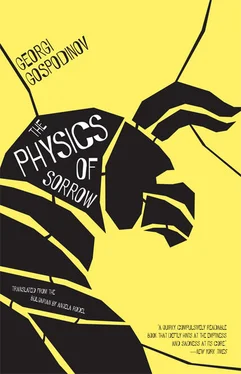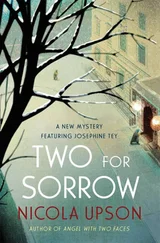She was born early in the morning in winter. It was dark. I was walking back home, the way out of the hospital passed through a strange tunnel. I felt as if I were coming out of a womb, as if I was going down the child’s path. A newborn father. It had been a long time since I had walked around that city at five in the morning, before sunrise. The neon signs were going out, the first streetcar passed by, I looked at the number. Seven. I told myself that this meant everything would be all right. It was exactly 5:07 A.M. A man was opening up his newspaper stand, I asked for every single one of the daily newspapers. He looked at me sleepily and bewildered. After all, nothing all that special has happened today, he said, puzzled.
Oh yes, it has. I paid, took my pile of newspapers, and walked away, happy.
What were the headlines from that day? Was the world’s nursery ready to meet that child?
.
First winter.
First snow.
First wind.
First dog.
First cloud.
For the eye of a child.
For the eye of every newborn — rat, fly, or turtle — each time the world is created anew.
In the beginning, they speak the language of all living creatures, cooing like a dove, gurgling like a dolphin, meowing, squawking, bawling. The linguistic primordial soup.
Dgish, anguh, pneya, eeeh, deeeya, bunya-bunya-bunyaba, batyabuuu.
God does not give language to newborns immediately. And that’s no accident. They still know the secret of paradise, but they have no words for it. When they are given language, the secret has already been forgotten.
Her first steps, she’s wobbling like a royal penguin. As if walking on the moon. She reaches out to grab onto the air. So concentrated and smiling to herself, so fragile. When you look at her, she falls.
While I’m writing about the world’s sorrows, Portuguese saudade , Turkish hüzün , about the Swiss illness — nostalgia. she comes to me, at two and a half, and suddenly snatches away my pen.
Sit here and open your mouth up wide, she says. Then she gets up on tiptoe and looks inside. Wow, it’s really dark inside you, I can’t see a thing.
Come on, let’s play dust motes. You’re the daddy dust mote, and I’m the baby dust mote.
THE BABY CARRIER
Here’s the deal, why shouldn’t I tell you? I’m not afraid. You get pregnant here and around the seventh month you’ve got to cross the border into Greece. You suck in your belly, wear baggy clothes, that’s why it’s better to choose colder weather. You light up a cigarette while they check your passport, to keep calm and cool on the one hand, and to not give away that you’re pregnant, on the other. Of course, the guy who’s taking you across has greased some palms, but you’ve got to do your part, too. So you cross the border. You sit on the outskirts of Athens for two months in some windowless room, like a closet. You don’t go out anywhere, so as not to run into any trouble. You just lie around, watching TV and eating like a pig. They feed you well, because the goods have got to be healthy. So you carry it to term, they have gotten in touch with the buyers, they say you’re a relative, they find you a doctor and you give birth illegally. Your guy takes the money and that’s that. I just don’t want them to show it to me when it’s born, so I don’t get sad. If I see it even once, it’s all over, I can’t give it away and I’ll screw up the whole deal. I support my other kids with this gig, I’ve got four waiting for me at home. I’m only doing it for them. How much do they sell for? Around five or six thousand, for one they gave me 8K, it was a boy, boys cost more, I get ten percent. I’ve sold four and raised four, that’s the breakdown. But this one now is the last one, end of story. Hey, it’s kicking, it knows we’re talking about it, stop kicking, kid, you’re life’s gonna be a hundred times better there. Sometimes I dream about them and light candles for them.
I bought this story in late October, near the Greek border. When I offered her money, the woman looked at me in astonishment. She couldn’t figure out what exactly I was paying her for. I’ve got nothing to sell you, she said, plus I’m not gonna have any more kids. I replied that I had just bought her story. I’m not sure she understood. She took the money and turned it over in her hands, as if expecting me to ask for it back, then turned around, took a few steps, squatted down, and burst out sobbing. I thought to myself that only now had she begun to sell her children. When she started telling about them. Without a story, it was all nothing but business.
Telling stories is part of Judgment Day, because it makes people understand. But what the point of understanding is remains unclear. I put these stories in the box, too.
THE STORY BUYER
In the past I could implant, now I’m forced to buy. I could introduce myself this way, too: I’m a person who buys up the past. A story trader. Others might trade tea, coriander, stocks and bonds, gold watches, land. I go around buying up the past wholesale. Call me what you want, find me a name. Those who own land are called “landholders,” I’m a timeholder, a holder of others’ time, the owner of others’ stories and pasts. I’m an honest buyer, I never try to undercut the price. I only buy up private pasts, the pasts of specific people. Once they tried to sell me the past of a whole nation, but I turned it down.
I buy all sorts of stories — about abandonment, about unfaithful women, about childhood, about travelling and getting lost, about sorrow and unexpected deliverance. I also buy happy stories, but there aren’t many sellers of those. From the first word I can tell fresh from rancid goods, true stories from those of fibbing shysters who only want to make a quick buck.
Most people sell their stories for a pittance, some are even dumb-founded that I offer them money for something that doesn’t cost a thing. Others are thankful to have someone to take on the burden they had previously been carrying alone.
What’s in it for me? Thanks to an earlier illness and to the purchased stories, I could now move through the corridors of various times. I could have the childhood of everyone I had bought one from, I could possess their wives and their sorrows. I could pile them up in the Noah’s Boxes in that basement.
THE OLIVE OIL TRADER (THE WHOLE TRUTH ABOUT MR. G.)
1.
I’ve never met such a gentleman — and I’ve met plenty, believe you me — who respected women as much as the ever-so-gallant Mr. G., he was so respectful it was downright worrisome, I’ve never met a man who could sit calmly next to a naked woman, a woman who was ready for him, after he himself had prepared her, a woman soft as clay, feeling her skin burning and hearing her crying out for him and not laying a finger on her, not driving his stallion into her, as was written somewhere, I read a lot, not letting his horse run free, not drawing his sword, not releasing his arrow from the taut bow, I have not met and will never again meet such a man, who, faced with such an opportunity, would speak of how easily we drink from the cup of sin, as if it were an infusion of chamomile or mulled wine, and how we covet what is not ours like a fig tree growing in the middle of the road, dear God, how Mr. G. could talk, cleverly and outlandishly, peculiarly and prettily, our men don’t talk that way, they simply stick their hands up your skirt, grab your tits and push you up against the wall. I don’t know if that saintly man is still alive, does the gentleman know anything more about him, since he is asking?
Oh, the gentleman is so courteous, but must one pay even for that nowadays?
Читать дальше












